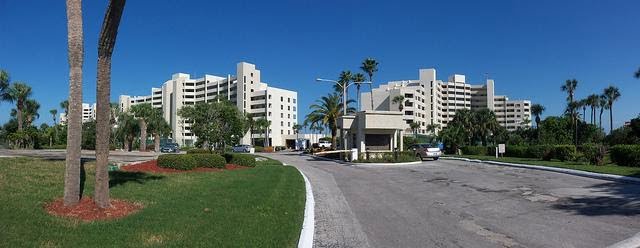As a manager for a homeowners or condo owners association, it is important that you understand the language and details of the complex insurance policies designed to protect the building and the association.
It’s easier – and cheaper – for insurance companies to avoid payment than it is to write a check for damages. Insurance companies are masters at manipulating policy language to benefit their bottom line. While it may seem unfair, it is common. Understanding the small print that exists on the insurance policy can help you avoid delays or denials in financial recovery.
When disaster strikes, a lot of community associations may not know the totality of the financial consequences. Like most, HOAs count on their insurance policies to provide the coverage that they will need to rebuild when structural damage occurs. Unfortunately, the process of recovery is not that easy.
After Hurricanes Michael and Irma, the amount of damage that was left behind throughout the state posed a real problem for HOA communities and condo buildings, as they are still trying to recover and receive payments from their insurance companies. With over 20,000 unpaid Hurricane Michael related insurance claims across Florida, it is essential to ensure that your HOA community has sufficient coverage and is prepared for unexpected damages.
Review the HOA Insurance Policy and Its Coverage Often
All homeowners’ associations and condo boards should review their existing insurance policy and overall coverage annually, to ensure it fits their community’s needs.
This includes knowing the deductibles that apply. Often, there are different and larger policy deductibles for storms, hurricanes, and floods, and it is important to know what exactly is being covered.
HOA property policies should also cover common perils that affect the structure of the building or community that they govern. When reviewing the policy, be sure it includes coverage for:
- Structural damages to the building, including windows and sliding glass doors
- Roof damage, including gutters and skylights
- Damage to common areas, including parking covers or garages, railings, lobbies, elevators, swimming pools, tennis/basketball courts, landscaping, and lighting structures
- General liability for the association
Make Sure You Review the HOA Bylaws and the Condo/Unit Owners’ Policies
When the HOA submits a claim, it is important to review and understand the bylaws to determine whether the association or the unit owner is responsible for covering the damages.
HOAs provide bylaws, which are governing guidelines. The bylaws should cover items such as: how often meetings are held, how many people are on the board, and what defines the common elements or areas of the building, versus what is considered to be the individual unit owners’ property.
Additionally, the HOA provides hazard and liability insurance, as part of the unit owners’ monthly condo dues. The policy covers common elements and shared features such as the roof, the exterior structure of the building, and amenities, such as the pool and gym.
On the other hand, individual unit owners have their own insurance, also known as an HO6 insurance policy. This provides condo/unit owners coverage for their own properties, belongings, and everything within the walls of their individual unit(s). This policy also protects against liability claims and helps cover the costs of living if the unit is uninhabitable.
What Types of HOA Insurance Claims Does the Association Typically File?
- Storm and hurricane damage
- Fire and smoke damage
- Water damage
- Broken water lines
- Broken water heaters
- Broken sprinklers
- Roof damage
- Damage to common areas including elevators, lobbies, swimming pools, and parking covers
Why Would the Insurance Company Dispute the HOA’s Claim?
When homeowners’ associations, condominium associations, and townhome associations file property damage claims, it is typically because structural damage to multiple condos, units, or common areas has occurred. And when the damages are extensive, so is the difficulty in accounting for, documenting, and covering all insured losses.
This makes the recovery process complex, and insurance companies often use that to their advantage. They often claim that there is insufficient documentation of the damages or that the policyholder did not notify their insurer in a timely manner. Many times, the insurer will just deny a valid claim, often without a legitimate reason or explanation, but simply to save them money.
contact our Florida insurance claims attorneys at The Morgan Law Group today at (850) 403-0992 to learn how to homeowners’ associations, condominium associations, and townhome associations file property damage claims

